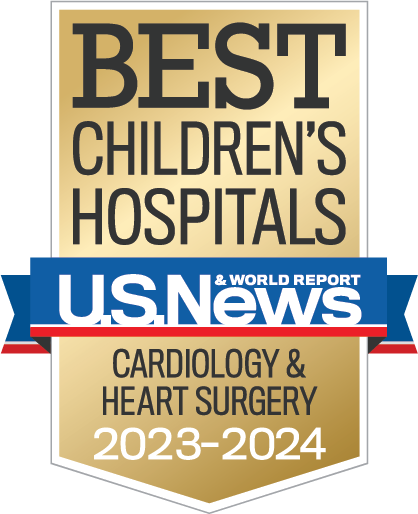- Doctors & Departments
-
Conditions & Advice
- Overview
- Conditions and Symptoms
- Symptom Checker
- Parent Resources
- The Connection Journey
- Calm A Crying Baby
- Sports Articles
- Dosage Tables
- Baby Guide
-
Your Visit
- Overview
- Prepare for Your Visit
- Your Overnight Stay
- Send a Cheer Card
- Family and Patient Resources
- Patient Cost Estimate
- Insurance and Financial Resources
- Online Bill Pay
- Medical Records
- Policies and Procedures
- We Ask Because We Care
Click to find the locations nearest youFind locations by region
See all locations -
Community
- Overview
- Addressing the Youth Mental Health Crisis
- Calendar of Events
- Child Health Advocacy
- Community Health
- Community Partners
- Corporate Relations
- Global Health
- Patient Advocacy
- Patient Stories
- Pediatric Affiliations
- Support Children’s Colorado
- Specialty Outreach Clinics
Your Support Matters
Upcoming Events
Mental Health Town Hall
Tuesday, April 23, 2024Join Children’s Hospital Colorado pediatric experts for a virtual...
-
Research & Innovation
- Overview
- Clinical Trials
- Q: Pediatric Health Advances
- Discoveries and Milestones
- Training and Internships
- Academic Affiliation
- Investigator Resources
- Funding Opportunities
- Center For Innovation
- Support Our Research
- Research Areas

It starts with a Q:
For the latest cutting-edge research, innovative collaborations and remarkable discoveries in child health, read stories from across all our areas of study in Q: Advances and Answers in Pediatric Health.


The Developmental Feeding Program
We are one of the largest programs in the country treating patients with heart problems from before birth through adulthood, with exceptional outcomes.

As part of the Complex Congenital Heart Disease and Development Clinic, the Developmental Feeding Program supports moms and their babies with cardiac conditions. By helping babies with heart defects reach important milestones after birth, the program supports one of the most important task for infants with cardiac conditions: feeding.
Frequently asked questions and answers
Q: Why is feeding/nursing more difficult for babies born with heart defects?
A: Infants who are born with heart issues, such as hypoplastic left heart syndrome or single ventricle, have problems in utero that typically result in being born smaller and with challenges like fatigue. Because the body is working overtime to compensate for the heart defect or recover from cardiac surgery, the baby doesn't have much energy left to feed.
Q: How does the team at Children's Hospital Colorado help moms and infants with feeding issues?
A: We look at feeding as an experience, not just a task. We try to enhance this experience the moment a baby born with complex congenital heart disease enters our hospital. We encourage things like holding the infant, having the mom start pumping right away, skin-to-skin contact, having babies experience the smell of their mother's breast milk, and promoting the family (versus hospital staff) as consistent feeders of the infant. This aligns with our family-centered model of care, as we work together and partner with each child's family to provide the best possible care.
Q: What strategies do you use to better understand a baby's feeding needs and habits?
A: Because babies are unable to communicate verbally, we try to better understand their feeding patterns by looking at physical and behavioral signals and the baby's interaction with his or her caregiver. We use what is known as a "biobehavioral approach," meaning we combine medical evidence and physical cues to see the big picture. A good example is diaper changes. If a baby gets upset and cries excessively every time he gets a diaper change, that requires a lot of energy that won't be available when it is time to feed. We help teach the parents other diaper changing techniques and explore options to calm the child and save energy.
Q: Who will be part of my baby's care team in the Developmental Feeding Program?
A: Our core team consists of a cardiologist, developmental specialist, registered dietitian and nurse practitioner. We also consult with other teams within the hospital including Ear, Nose and Throat, Speech/Language Pathology and/or Occupational Therapy to test for additional issues like swallowing or breathing problems.
Q: How will the program work during our hospital stay?
A: A developmental specialist, like myself, will see your child once a week in Cardiac Intensive Care Unit (CICU) and twice a week when he or she is moved to the inpatient cardiology floor. The developmental specialist will work with the entire team of occupational therapists, speech-language pathologists, registered dietitians, certified lactation consultants and parents to develop ways to support your child's growth and development.
Q: What should I expect after we go home from the hospital?
A: After your child is discharged, we will schedule a developmental follow-up visit in our Complex Congenital Heart Disease and Development Clinic. During that appointment, our team will evaluate how the feeding plan is going, monitor your infant's weight and develop a nutrition plan. We'll also be sure you are receiving home therapies if needed, all while staying in regular communication with your child's pediatrician.
Learn more about the Complex Congenital Heart Disease and Development Clinic.



 720-777-0123
720-777-0123



